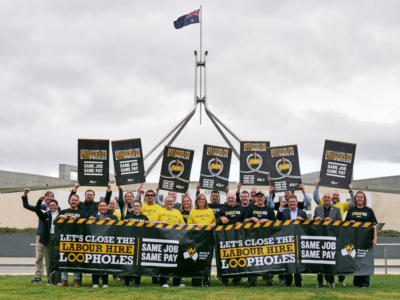Podcast: Meet the man who shook up unionism 100 years ago
News April 10, 2024
National
Northern Mining & NSW Energy
NSW South Western
Queensland
Tasmania
Victoria
Western Australia

We have won Same Job Same Pay! Find out what happens next, and how you can help us get Same Job Same Pay at your worksite.

One Nation have consistently voted against working people, keeping wages low and striping everyday Australians of their rights at work.